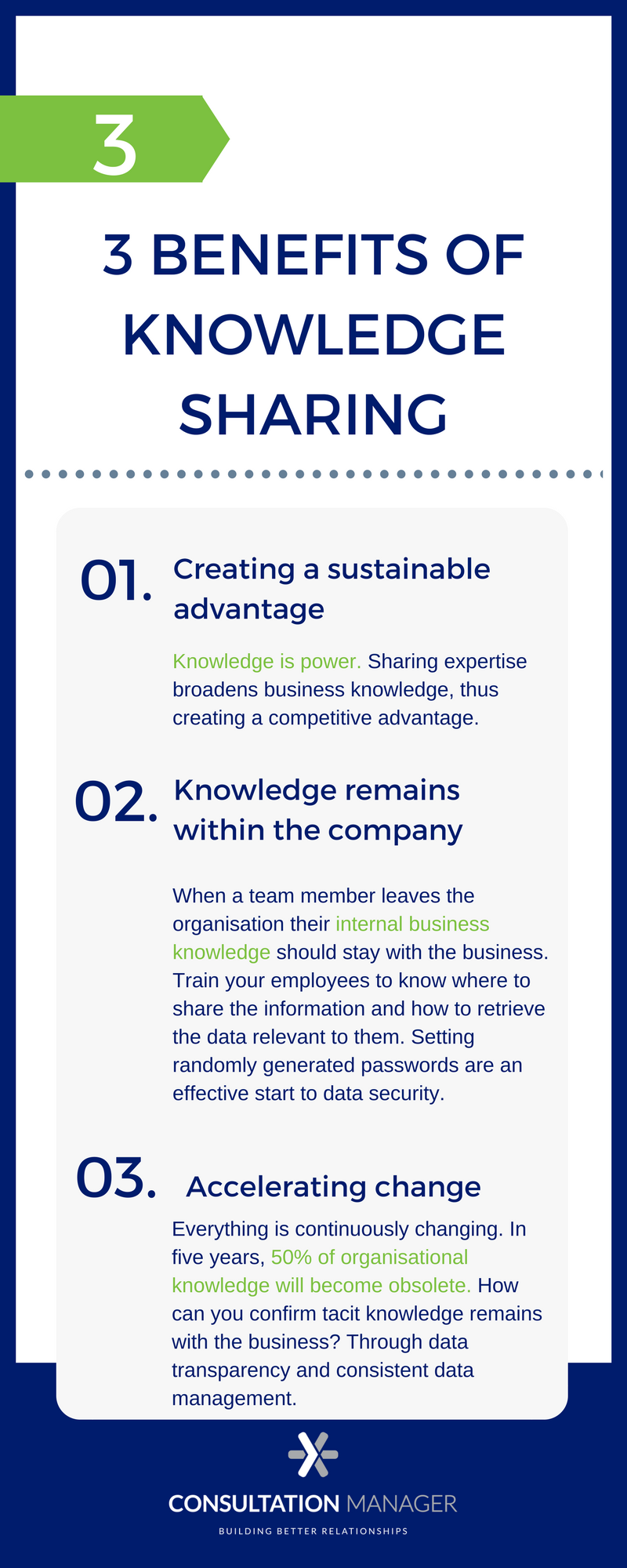There are many benefits of knowledge sharing. Organisational sharing expertise helps create a competitive business advantage.
Knowledge sharing improves operational efficiency and helps businesses quickly respond to change. Teams need information-sharing capabilities to support organisational and strategic activities.
Let’s look at how data transparency can improve operational activities. Tina, the Minister’s personal assistant, needs access to last week’s PR meeting. Kevin, from the PR department is sick and won’t be accessible until after the weekend. In this case, a transparent knowledge management system would help Tina retrieve the knowledge she needs without the need to communicate with Kevin.
Positives of encouraging transferring knowledge across internal teams
The creation, application, and maintenance of knowledge are essential for business survival. Without effective communication, the business could suffer from process inefficiencies, increased costs and could potentially communicate false information to stakeholders. You can read our previous article to find out more about the importance of consistent messaging to your stakeholders.
David Gurteen wrote an intriguing article about the perks of communicating knowledge with your team. Here are my favourite three benefits of knowledge sharing:
- Creating a sustainable advantage. Knowledge is power. Sharing expertise broadens business knowledge, thus creating a competitive advantage.
- Knowledge remains within the company. When a team member leaves the organisation their internal business knowledge should stay with the business. Yes, there are confidentiality agreements, but how can you ensure data is secure? Personal work computers and randomly generated passwords are an effective start. Train your employees to know where to share the information and how to retrieve the data relevant to them.
- Accelerating change. Everything is continuously changing. This includes technology, business processes and social settings. In five years, 50% of your organisational knowledge will become obsolete. How can you confirm tacit knowledge remains with the business? Through data transparency. For example, getting employees to document their thought process to overcome business hurdles.
Effective knowledge transfer takes time
The benefits of knowledge sharing don’t appear overnight. Data management systems, internal sharing and overcoming information transfer barriers take weeks, even months to put in place. Our article about knowledge sharing across internal teams communicates different ways to implement data transparency.
Introduce internal communication to your business. Set a goal and create milestones to help achieve it.
Does your business have a Consultation Manager system? We can provide you with the software and solutions to create a detailed and transparent knowledge base.
Knowledge sharing benefits summary
Need a quick refresher? Here’s an infographic about the 3 benefits of knowledge sharing.

Enjoyed this blog? Read the next article in our “knowledge sharing series”: How to overcome the common reasons employees are resistant to share information.
If you haven’t yet, subscribe to our newsletter before you go.


